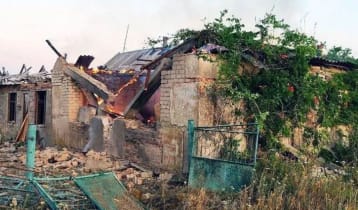Alarmingly high levels of arsenic in Pakistan's ground water
4 || risingbd.com

International Desk: Up to 60 million people in Pakistan are at risk from the deadly chemical arsenic, according to a new analysis of water supplies.
The study looked at data from nearly 1,200 groundwater quality samples from across the country.
The resulting risk map shows concentrations well above World Health Organization (WHO) safety guidelines across the Indus plain.
The research has been published in the journal, Science Advances.
Arsenic is a semi-metallic element found all over the world in varying concentrations. Humans come into contact with it because it leaches into groundwater from rocks and sediments.
The WHO says about 150 million people around the world rely on groundwater contaminated with arsenic.
Long-term exposure can lead to a variety of chronic health conditions, including skin disorders, cancers of the lung and bladder as well as cardiovascular issues.
The WHO has established a level of 10 micrograms per litre as the permissible concentration in drinking water. In Pakistan, the government says that 50 micrograms per litre is acceptable.
This new study shows that 50-60 million people living in the Indus valley, which runs through much of eastern Pakistan, are drinking water which very likely exceeds their government's safe level.
The scientists collected ground water samples, taken from wells going down into the Earth, at 1,200 sites throughout the country. The team then used statistical methods to construct a "hazard map" and to estimate the size of population exposed to the threat.
Lead author Dr Joel Podgorski from the Swiss Federal Institute of Aquatic Science and Technology told BBC News that the findings were "alarming".
"This is the first time we've been able to show the full extent of the problem in Pakistan. Because of the geology and the soil properties and based on all of the measurements we've taken, basically the whole Indus plain is at high risk of having high arsenic levels in the groundwater."
The researchers say that one important cause of the problem is that the sediments that contain the arsenic are relatively young.
So if an aquifer has developed since the end of the last ice age around 10,000 years ago, it's more likely to have higher levels of arsenic in the water than older, deeper aquifers where most of the chemical has leached away.
The scientists also believe that irrigation for farming is making the situation worse. The study found a strong correlation between high soil PH levels and arsenic concentrations.
"There is massive irrigation in the Indus valley, it's a very hot and dry climate," said Dr Podgorski.
"If you have a lot of water flooding the surface that is going to percolate down to the aquifer, that would be an easy way of bringing any released arsenic down to the groundwater."
The number of people who are likely impacted in Pakistan, according to the study, far exceeds the 20 million affected in China. Some researchers, who welcomed the study, have reservations about the scale of the impact.
For David Polya, professor of environmental chemistry at the University of Manchester, there is a "considerable amount of uncertainty in the new figures".
Source: BBC
risingbd/Aug 24, 2017/Mukul
risingbd.com



















